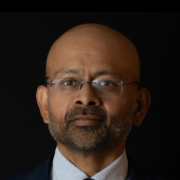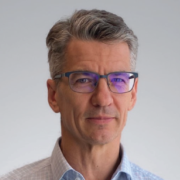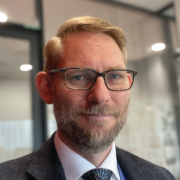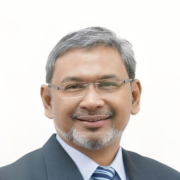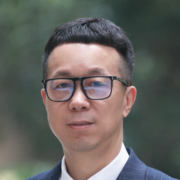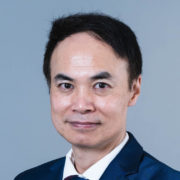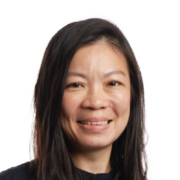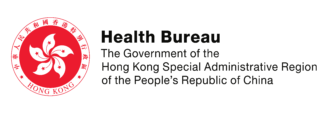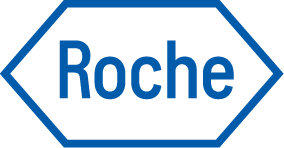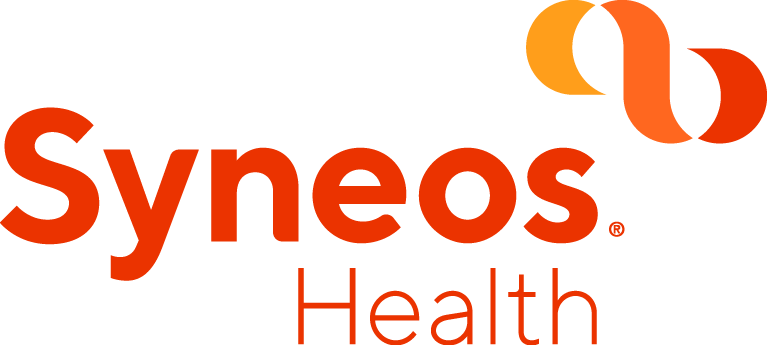
Clinical Research Governance World Conference &
International Clinical Trial Center Network Symposium 2023
"Clinical Research Success through Good Governance"
29 November 2023 (Wed)
09:30 – 17:00 (GMT+8)
Holiday Inn Golden Mile Hong Kong / Online
English - Putonghua simultaneous interpretation
Overview
Clinical Research Governance (CRGo) World Conference & International Clinical Trial Center Network (ICN) Symposium 2023 offers an excellent opportunity for fostering communication and knowledge exchange among the international biomedical research communities, bringing together various professional representatives from academic and healthcare institutions, clinical/medical research organizations, biomedical/pharmaceutical industry and governmental agencies on the latest trend of clinical trials governance.
Speakers
Programme
09:30 – 10:00
Opening
Welcome Address
Prof LAU Chak-sing, Dean, LKS Faculty of Medicine, The University of Hong Kong, Hong Kong SAR
Opening Remarks
Prof LO Chung-mau, Secretary for Health, Hong Kong SAR
Opening Remarks
Mr LI Chuang, Deputy Director, Shenzhen Municipal Health Commission, China
Special Remarks
Dr med Christiane BLANKENSTEIN, Chairperson, International Clinical Trial Center Network (ICN)
Opening Ceremony
10:00 – 11:00
Keynote Speeches
Session Chairs:
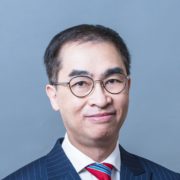
Bernard Cheung went to Sevenoaks School and studied Medicine at the University of Cambridge. He was Professor of Clinical Pharmacology and Therapeutics at the University of Birmingham before returning to Hong Kong and being appointed the Sun Chieh Yeh Heart Foundation Professor in Cardiovascular Therapeutics. He was a Consultant Physician of Queen Mary Hospital and the Director of the Phase 1 Clinical Trials Units in Queen Mary Hospital and the University of Hong Kong-Shenzhen Hospital. Currently, he is the Biotechnology Director in the Innovation and Technology Commission.
He is also the President of the Federation of Medical Societies of Hong Kong and the Editor-in-Chief of Postgraduate Medical Journal. Prof Cheung’s main research interest is in cardiovascular diseases and risk factors, including hypertension and the metabolic syndrome.
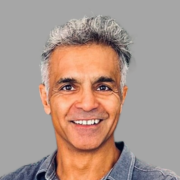
Robbie Chana stands at the forefront of biopharmaceutical solutions, currently serving as the VP of Business Development Asia Pacific at Syneos Health. Based in Singapore, he steers the pan-Asia business development initiatives for a company that seamlessly integrates CRO and Commercial solutions in drug development. With a rich tapestry of over 20 years in clinical drug development, Robbie's expertise spans operations, business, and corporate development.
His journey began in the UK NHS, where he made significant strides as a Biomedical Scientist in Clinical Chemistry, pioneering techniques for myeloma screening and diabetes monitoring for global phase III trials. Robbie's leadership acumen was further showcased when he spearheaded the expansion of the Clinical Pharmacology Unit Laboratory at Quintiles in London.
Having held pivotal roles at global CRO like Labcorp and BioClinica, Robbie has been instrumental in expanding services across Europe, Asia, and the US. His international business development endeavors have left an indelible mark on the global CRO landscape.
A proud alumnus, Robbie holds a BSc from Leeds University, an MSc from NESCOT, and an MBA from Kingston Business School, UK. As a Co-chair of Keynote Speeches at the Clinical Research Governance World Conference 2023, he brings a wealth of knowledge, experience, and a global perspective on the evolving landscape of clinical drug development.
10:00 – 10:20
What is WHO Doing to Improve the Quality of Evidence from Clinical Trials? An Update on the 2022 Clinical Trials Resolution of the World Health Assembly
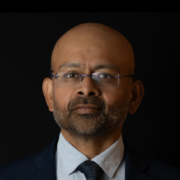
Dr Moorthy has a senior position within the Science Division at WHO. This is a corporate division of WHO’s headquarters created by the current Director-General to ensure that science and evidence lies at the heart of everything that WHO does. Dr. Moorthy is situated in a central Research for Health department that he helped create in 2019, which provides technical support to all of WHO’s disease and service delivery programmes on all matters related to research. He has over 25 years experience as a clinical researcher as follows: qualification in Natural Sciences (first class honours) from the University of Cambridge, UK; a medical degree from University of Oxford; a PhD in clinical trials of malaria vaccines from University of Oxford; 5 years of clinical research based in Africa (South Africa and The Gambia); making decisions about funding clinical trials working for PATH, an NGO based in USA; a career as a clinical academic at the University of Oxford, UK where he completed his internal medicine (FRCP) and infectious diseases subspecialty training; a total of 7 years as a practicing physician. Dr Moorthy joined WHO in 2008 as their lead on malaria vaccines, being promoted to positions of greater responsibility. He is now the lead coordinator on implementation of the World Health Assembly resolution on clinical trials passed in 2022. He has been involved in prioritization, funding, design and implementation of clinical trials that have recruited in over 50 countries, in all 6 WHO regions related to COVID-19, Ebola, Mers-CoV, Lassa fever, malaria, and many other infectious diseases.
The World Health Assembly passed resolution WHA 75.8 on strengthening clinical trials in 2022. This resolution highlighted the benefits of the few well-designed and well-implemented clinical trials that achieved sufficient scale during the pandemic. These saved many millions of lives through identify safe, effective interventions. The resolution also highlighted the thousands of uninformative trials that wasted resources and took participants away from potentially useful trials. Several reforms to the ecosystem are suggested in the resolution which center around efficiencies in approval processes, better prioritization and use of resources, and ensuring trials are well-designed and well-implemented.
The speaker will summarise the background to the resolution and the actions being taken by WHO in line with requests of Member States.
10:20 – 10:40
From Founding to Flourishing: What a One-stop CTC means to a Biomedical R&D Ecosystem
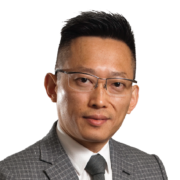
Henry Yau is the Chief Executive Officer of The University of Hong Kong Clinical Trials Centre (China) (HKU-CTCC), Managing Director of The University of Hong Kong Clinical Trials Centre (HKU-CTC) and Honorary Assistant Professor of Faculty of Medicine of Macau University of Science and Technology (MUST). He holds a B.Sc. in Biochemistry and a MBA in Finance. Started his career in the pharmaceutical industry in early-1990s, Henry has been specializing in clinical research management for over two decades since 2000. Henry has also been recognized as a High-end Foreign Expert (Clinical Trials Management) under the National High-end Foreign Experts Recruitment Plan of the Chinese Ministry of Science & Technology (MOST) since early-2023, and undertakes roles in many local and international bodies such as Steering Board Member and Past Chairperson of the International Clinical Trial Center Network (ICN), Member of the Working Group on Good Governance Practice for Research Institutions of the Council for International Organizations of Medical Sciences (CIOMS), and Advisor (Asia) of Training and Resources in Research Ethics Evaluation Program (TRREE). Henry is also devoted to consolidating and transferring practical knowledge in international clinical research management and operations and has been invited to participate as speaker, trainer or panelist in 160 conferences/forums/workshops around the world.

Dr Creany Wong is the Chief Operating Officer of The University of Hong Kong Clinical Trials Centre (China) (HKU-CTCC), Deputy Managing Director of The University of Hong Kong Clinical Trials Centre (HKU-CTC) and Honorary Assistant Professor of Faculty of Medicine of Macau University of Science and Technology (MUST). She obtained her BSc in Food and Nutritional Science and then continued her M.Phil and PhD degree studies at The University of Hong Kong. Creany has been specializing in clinical research management for 17 years since 2006. Creany has also been recognized as a High-end Foreign Expert (Clinical Trials Management) under the National High-end Foreign Experts Recruitment Plan of the Chinese Ministry of Science & Technology (MOST) since early 2023, and undertakes roles in many local and international bodies such as Member of the Working Group on Good Governance Practice for Research Institutions of the Council for International Organizations of Medical Sciences (CIOMS), Member of Genetically Modified Organisms (Control of Release) Expert Group of Agriculture, Fisheries and Conservation Department (AFCD), HKSAR and Advisor (Asia) of Training and Resources in Research Ethics Evaluation Program (TRREE). Creany is also devoted to consolidating and transferring practical knowledge in international clinical research management and operations and has been invited to participate as speaker, trainer or panelist in some 100 conferences/forums/workshops around the world.
In July 2023, the World Health Organization (WHO) launched a public consultation on a draft guidance for best practices for clinical trials, aiming at strengthening clinical trials to provide high-quality evidence on health interventions and to improve research quality and coordination following the resolution adopted in the World Health Assembly in May 2022. One important proposition in the draft guidance is to encourage each country/region to establish at least one well-functioning clinical research institution with the expertise to govern, conduct and coordinate clinical studies across research sites in its country/region and to collaborate with other research institutions on a global horizon to respond to public health needs. From the perspective of the biomedical industry, a robust and professional clinical research institution is also an indispensable element in a sustainable R&D ecosystem, facilitating and accelerating the translation of biomedical innovations from bench to bedside.
Founded in 1998, The University of Hong Kong Clinical Trials Centre (HKU-CTC) has gone through a challenging whilst fruitful journey of 25 years. Started from a small administration office with just a few staff members, HKU-CTC has grown up to a robust team of over a hundred experts together offering one-stop solutions and services supporting industry-sponsored and investigator-initiated clinical studies of all sorts. Leveraging the capabilities developed over the past 25 years, the centre is implementing a strategic plan to build an open platform that encourages and energizes high quality clinical research addressing the needs of public health and biomedical R&D – for Hong Kong, the Greater Bay Area and worldwide.
10:40 – 11:00
Research Institution: A Key Partner in the Implementation of Research Ethics and Prevention of Research Waste
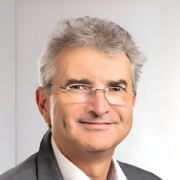
Prof Dominique Sprumont is a Professor of Health Law, President of the Research Ethics Committee of Vaud, founding member of the Institute of Health Law of the University of Neuchâtel, and past Vice-Director of the Swiss School of Public Health. He collaborated in the drafting of many legislations in the field of health and healthcare at the cantonal, Swiss and European levels. He is also regularly invited by scientific and professional associations in developing their guidelines in those fields, such as the WMA 2008, 2013 and ongoing revisions of the Declaration of Helsinki and the WMA 2016 Declaration of Taipei on Health Databases and Biobanks. Expert in the field of public health law with special interest in the regulation of research involving human participants, patient’ rights, the regulation of healthcare professionals, pharmaceutical and food stuff regulation, he has written more than 180 scientific publications, articles and book chapters on those issues. He is a board member of the European Network of Research Ethics Committees (EUREC), as well as the Council for International Organizations of Medical Sciences (CIOMS) and coordinator of Training and Resources in Research Ethics Evaluation Program (TRREE), a free and open access e-learning program in research ethics and regulation available in 7 languages including Chinese(http://elearning.trree.org).
Clinical research is necessary for advancing medical sciences and human healthcare, for the benefits of people worldwide. It is however recognized that a significant proportion of clinical studies produced “research waste”. For instance, due to inappropriate design, conduct or dissemination of the results, some research projects may fail to advance scientific knowledge or provide a social return on the resources invested. During the COVID pandemic, with support of clinical trial centers around the world, the scientific community demonstrated its capacity to work collectively at the international level and provide the world population much needed preventive and protective measures to mitigate the impact of the disease. Yet, on the more than 20,000 research projects worldwide related to COVID, a material percentage did not create useful scientific or social value in terms of knowledge generation, clinical services or policy making. In this regard, the World Health Organization (WHO) has adopted a resolution to improve the research ecosystem and to limit research waste. Other organizations have also adopted guidelines for best practices regarding clinical trials, such as the 2022 Good Clinical Trials Collaborative for good randomized clinical trials. Hopefully by the end of the year, CIOMS should adopt a new set of international guidelines on Good Governance Practice for Research Institutions (GGPRI) that will fill up an important gap. Today, researchers are mostly left alone to cope with their responsibilities in terms of GCP and research ethics. The new CIOMS guidelines aim at helping the research institutions better support the researchers in their activities to promote better research that advance scientific knowledge and is relevant to the needs of the health of individuals and the populations.
11:00 - 11:20
Collaboration Ceremony
11:20 - 11:40
Coffee Break
11:40 – 12:45
Session I: Research Capabilities & Capacity Development
Session Chairs:
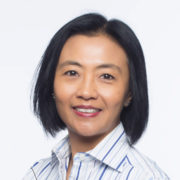
In her role as Head of Institute for Translational Research in Hong Kong Science Park, Grace together with her team are responsible to drive transformation in healthcare by expediting the translation of innovative biomedical technologies to benefit patients and our society, establishing Hong Kong as a preeminent hub for biomedical innovation, product development and commercialization.
Grace is an all round professional and leader in the biopharma industry with over 20 years’ experience and expertise spanning across clinical research, regulatory affairs, sales and marketing and general management responsibilities in different market environment and geographic locations. She also developed expertise in the quality management of the highly specialized supply chain for pharmaceutical and healthcare products including drugs, medical devices, medical diagnostics and other healthcare related technologies.
Prior to joining the pharmaceutical industry, Grace conducted research in both laboratory-based as well as clinical studies. She was an academic staff of the Chinese University of Hong Kong, Baptist University and a guest lecturer for a number of other local and overseas institutions of higher education.
Grace has been an active member of the professional associations for the pharmacy profession, being a registered pharmacist in both the UK and HK. She holds a BPharm degree and a PhD in medical sciences.

Prof Kwanchanok Yimtae is a Professor in Otorhinolaryngology. She is the Former Director of Khon Kaen Ear, Hearing and Balance Center and the Former Director of Academic Clinical Research Office, the Faculty of Medicine, Khon Kaen University. Her academic interests have been in areas of Otology, Neurotology, Audiology, Health System, Medical Devices, Research Ethics, Product Development and Clinical Research Center Administration. She is now working at the Clinical Research Center, Faculty of Medicine Ramathibodi hospital, Mahidol University. She also serves as the Chairperson of National Clinical Trial Network and The President of Human Research Promotion Foundation of Thailand (the Parent Organization of Central Research Ethics Committee).
11:40 – 12:00
Big Steps Towards Streamlined and More Efficient and Innovative Clinical Research: The UK Plan
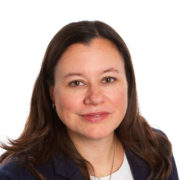
With a background in business administration and research management within the NHS, Louise Stockley joined Cambridge Clinical Trials Unit (CCTU) as Operations Director in 2018 where she oversees the Unit’s activities and leads the senior management team. She is responsible for the delivery of the strategic framework and business plan of the CCTU and ensuring ongoing regulatory compliance within an effective quality management system. CCTU is an UKCRC registered academic clinical trials unit, with a diverse portfolio of interventional clinical trials covering a wide range of therapeutic areas. The CCTU collaborates with investigators in the conduct of early phase drug trials (CTIMPs), medical device trials, mechanistic and physiological research including both single and multi-centre trials, nationally and internationally.
Prior to this, as Research Governance Manager, she was responsible for all operational aspects of the governance service for clinical research within Cambridge University Hospitals. This included working with the newly established Health Research Authority in their development of the national strategy and processes for research.
Over recent years there has been much discussion regarding enhancing clinical research within the UK, with the vision of creating a world-leading clinical research environment that is more efficient, more effective and more resilient. UK Government policy papers have been published setting out the aims for the future of UK Clinical Research Delivery. This presentation will pick up some of the key themes of this plan, outlining areas where progress has been made and where challenges remain.
12:00 – 12:20
Clinical Research in Malaysia: Challenges and Opportunities
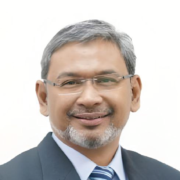
Dr Akhmal Yusof graduated from the Royal College of Surgeons in Ireland in 1992. He practiced medicine in the public & private hospital for nearly 10 years. He later ventured in the medical insurance industry with the American International Assurance Malaysia as Medical Manager. In 2002, he led the Medical Department in AstraZeneca Malaysia, Singapore & Brunei for 13 years. His main forte in the pharmaceutical industry is clinical research management, regulatory affairs, medical and government affairs. Currently, he leads Clinical Research Malaysia (CRM) as Chief Executive Officer since 2015. CRM is a Malaysia Ministry of Health owned Site Management Organisation. Established in 2012 to promote Sponsored Research in Malaysia. CRM is now an accredited ISO9001:2016 and ISO37001:2015. Through CRM Phase 1 Realisation Project (P1RP) Malaysia has started to conduct First in Human Clinical Trials. Dr Akhmal Yusof is also a member Board of Trustee and Chairman Nominating & Remuneration Committee for the National Institute of Biotechnology Malaysia.
Malaysia is committed to conduct Commercial Clinical Trials with Speed, Reliability & Quality since decades ago. The aspiration is further by the formation of research management organization, Clinical Research Malaysia (CRM) a wholly owned by Ministry of Health Malaysia. CRM is also an accredited ISO 9001 Quality Management System & ISO37001 Anti Bribery Management System accredited making it a trusted research management organization.
We have observed professional clinical research careers expanded with the growth Clinical Research industry over the years. Since CRM conception in 2012, Malaysia has conducted over 2000 commercial clinical research with contract values of USD 300 million across therapeutic areas with more than 2600 jobs created. CRM launched Phase 1 Realization Program (P1RP) to expand into First in Human & Phase 1 Clinical Trials.
The Covid-19 pandemic almost stall all infrastructure development plan for clinical research in Malaysia. The rigid system of regulatory approval requiring GMP-PICS certification contributed to lengthy processes review especially projects coming from non-member PICS.
CRM adopted a guiding principle of Humanity, Stability and Sustainability. Humanity helps us to focus on the greatest intangible value providing access to medicine for unmet medical needs. The value proposition offered by Malaysia with a third of world genomics resides in the country, dedicated investigators & clinical research sites with world class achievements has attracted global clinical trials into the country from variety Global companies.
12:20 – 12:40
Why CRIS and SCRI in Singapore?
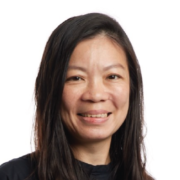
Catherine comes with 18 years of clinical trial experience, starting as a research nurse to managing projects in global companies. She has experience handling multi-country, multi-center, trials from feasibility to study closure, across Phase I-IV, and in therapeutics such as oncology, psychiatry, medical devices and rare diseases. Besides monitoring experience, she has also accumulated much experience in training, mentoring and improving operational processes in cross-cultural settings, particularly in the Asia-Pacific region. Currently as an innovation manager in a public agency, she plays an active role in the national level initiatives to contribute to the local clinical trial and healthcare enterprise. Throughout her career, she sees working in the clinical research industry as a calling and enjoys working in a cross-matrix environment, as well as seeking new ways of conducting business.
The presentation will outline the growth of Singapore Clinical Research Institute (SCRI) from a small standalone unit to become part of Singapore’s integral research and innovation consortium. The Consortium for Clinical Research and Innovation Singapore (CRIS) is made up of several business units (BUs), and all parts work together to serve the larger research and innovation enterprise in Singapore and even the region. The presentation will highlight several initiatives from SCRI and other sister BUs that strive to benefit the ecosystem through regional collaboration and partnership.
12:40 – 12:45
Q&A Session
12:45 – 14:15
Lunch Break
14:15 – 15:20
Session II: Frontiers of Clinical Research Methods
Session Chairs:
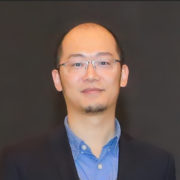
Mr. WAN Ming serves as the Deputy Director of the Shanghai Clinical Research Center and also holds the position of Deputy General Manager at Shanghai Clinical Research Center Limited.
With over a decade of experience in the field of life health and clinical trial, Mr. Wan has amassed rich expertise in clinical research management. His responsibilities span various areas including operational management, project management, data statistics, and talent development.
Over the past five years, Mr. Wan and his team have provided comprehensive support to scientific research projects in more than 20 hospitals in Shanghai, offering significant assistance to the innovative work of the hospital's research teams.
Mr. Wan concurrently serves as the Deputy Secretary-General of the Shanghai Oriental Brain Foundation, dedicating himself to research on Alzheimer's disease and longitudinal studies of the elderly in Shanghai Community.
Mr. Wan graduated from Shanghai Normal University with a major in Biology and possesses proficiency in data management and statistical analysis. He has authored more than 10 SCI articles.
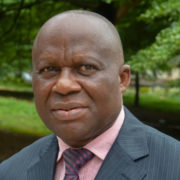
Dr Atara Ntekim is a Board-Certified Clinical Oncologist with the University College Hospital and a Faculty Member of the College of Medicine, University of Ibadan Nigeria. He is a clinical researcher, working towards better management of cancer care for patients across Nigeria and sub-Sahara Africa. His mission is to work towards effective cancer control in sub-Sahara Africa by redefining how cancer care is approached. Atara is particularly interested in the use of clinical trials to provide scientific evidence to help promote appropriate treatment for cancer patients in Africa. He is a Member of the Africa-Oxford-Harvard-Hopkins (AfrOX-H2) Clinical Trials network and a member of the International Clinical Trials Network (ICN). He played a key role in setting up an Oncology Clinical Trials Network that successfully conducted the first biomarker informed oncology clinical trial in Nigeria. This was in collaboration with the University of Chicago Center for Global Health. Furthermore, he played a significant collaborative role in the development of four oncology clinical trial sites in Africa that are now capable of undertaking all phases of industry standard clinical trials. These will help in attracting more oncology clinical trials into a region that is poorly represented in global oncology clinical trials.
14:15 – 14:35
Utilization of Real-world Evidence for Supporting Marketing Registration of Pharmaceutical Products:
A Case Study
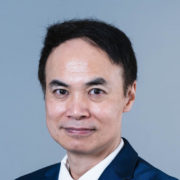
Professor Wong is the Head of Department of Pharmacology & Pharmacy of HKU and holder of the Lo Shiu Kwan Kan Po Ling Professorship in Pharmacy.
Professor Wong’s expertise is using big data research to investigate safety and optimum use of medications for treatment of various conditions specifically cardiovascular, neurological and psychological conditions. He was appointed by the Hong Kong SAR Government to conduct pharmacovigilance study for COVID-19 vaccine under the CAP599K regulation. Professor Wong’s team worked with Hospital Authority and Department of Health to link up vaccination records, clinical data and infection records to create a powerful database to evaluate COVID-19 vaccine
safety and effectiveness in Hong Kong. The Lancet Psychiatry described Professor Wong in July 2023 issue: “Father of the health-care big data research in Hong Kong because of his pioneering work and the large team he leads and has mentored”
Professor Wong has over 600 peer-reviewed papers published in prominent journals including Nature portfolio journals, JAMA Network Journals, Lancet family journals and BMJ journals. Professor Wong was cited among the top 1% of scholars in the Clarivate Analytics' Essential Science Indicators in nine consecutive years between 2015 and 2023.
In the recent years, the European Medicines Agency (EMA), US Food and Drug Administration (FDA) and National Medical Products Administration (NMPA) have been advocating the new approach in the use of real-world data (RWD) to generate real-world evidence (RWE) for licensing purpose. In this talk, I will describe a regulatory case study of a novel marketing authorization application (MAA) incorporating RWE that provided important evidence to confirm the benefit and risk of denosumab and facilitated a label expansion in China.
Denosumab was approved by the NMPA in the People's Republic of China in 2020. It was the first monoclonal antibody for the treatment of postmenopausal women with osteoporosis at high risk of fractures. The approval was supported by a novel MAA that included data from (1) Global clinical trial program establishing favorable efficacy and safety and (2) Results from an RWE study confirming the effectiveness and safety of denosumab in clinical practice for treatment of Chinese patients within Hong Kong and Taiwan. Such an approach avoided the conduct of additional placebo-controlled trial data in populations where adequate ethnic characterization of efficacy, effectiveness, and safety had already exist from RWE. It accelerated the licensing process and patients was able to access a effective treatment earlier. The latest Hong Kong Drug Office policy “1+” is also adopting such an approach so it can speed up the approval process.
I will also describe how our new HKUMed spin-off company “Advanced Data Analytics for Medical Science (ADAMS)” can support R&D of pharmaceutical industry. ADAMS has the unique combination of expertise in data science and regulatory science in Hong Kong which provides RWE to support licensing application.
14:35 – 14:55
Decentralized Clinical Trials: Potential, Challenges and Practical Applications

Michael joined Novotech as Chief Operating Officer in Oct 2020, following the merger of Novotech and PPC Group, previously working as Chief Executive Officer at PPC Group from Sep 2017, following TPG Capital Asia’s acquisition.
Worked with TPG Capital Asia as Senior Advisor, Healthcare June 2017-Dec 2021 supporting a number of projects
Michael has over 25 years CRO experience in a wide range of regional and global operations and strategic roles. Based in Singapore for 12 years, Michael lead the growth and development of the Clinical Development Services group across Asia Pacific for the largest healthcare services company, establishing operations in a number of new geographies across the region. In addition, Michael lead a number of global operational transformations and system implementations.
Michael holds a Master of Science from Sydney University
The CoViD-19 pandemic caused a significant increase in Decentralised Clinical Trials (DCT). While, elements of DCT strategies have been available and utilised for more than 10 years prior to the pandemic, the industry saw a significant shift in levels of adoption, with 76% of pharmaceutical companies, device manufacturers, and CROs adopting decentralized techniques during the early phase of the pandemic.
Implementation of DCTs rely on the use of digital tools and technologies such as e-consent, apps, wearable devices, Electronic Patient-Reported Outcomes (ePRO), telemedicine, as well as moving trial activities to the patient’s home or local healthcare settings, through passive monitoring devices Vs active data collection procedures. With, just 5% of eligible patients participating in clinical research, the use of remote tools and methods show great potential for increasing trial efficiency and reducing barriers by facilitating participation outside of traditional clinical settings.
The regulatory agencies have raised concerns that racial and ethnic representation in clinical trials is inadequate and linked to health inequities. DCTs allow patients to participate regardless of where they live by removing logistical barriers, which then offers better access to the study and the investigational product and permit the inclusion of more diverse and more representative populations. Participants, particularly those from minority groups, cite geographical constraints, mistrust, miscommunication, and discrimination as barriers. However, key challenges recognized by regulators for DCTs include concerns regarding investigator oversight and participants' safety when physical examinations and face-to-face contact are limited.
To optimize inclusive participation in clinical trials, three factors of participant engagement have been identified that affect the successful conduct of clinical trials. They are the ability to identify and attract potential participants, retain participants and encouraging adherence, and involvement of patients and the public in the clinical trial industry. As we embark on the next stage of evolution of the clinical trial, there is great potential in the ability of patients, investigators, regulators and sponsors to build trust and confidence in these new approach and technologies, to increase synergies amongst these key stakeholders in the drug development industry.
14:55 – 15:15
Patient and Public Involvement in Clinical Research
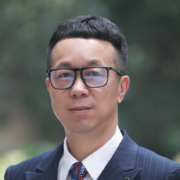
Xu Zhongyuan (Doctor of Medicine/Engineering), Chief Pharmacist / Professor, Director of Clinical Pharmacy Center, Nanfang Hospital, Southern Medical University; Director of Drug Clinical Trial Center and Director of Phase I Clinical Research Unit; Director of Department of New Drug Evaluation, National Clinical Research Center for Kidney Diseases; Director of Guangzhou-Hong Kong Collaborating Center for Clinical Research of New Drugs; and Adjunct Professor and Postgraduate Supervisor at Jinan University and Guangzhou Medical University. He was a Visiting Scholar at the Center for Clinical and Translational Research at Vanderbilt University and a Visiting Professor at the City of Hope Medical Center in the United States.
Major academic appointments:
Executive Director of the Chinese Pharmaceutical Association;
- Member of the Expert Committee on Strategic Development, Chinese Pharmaceutical Association;
- Director of the Specialized Committee on Drug Clinical Evaluation and Research, Chinese Pharmaceutical Association;
- Deputy Director of the Ethics Committee, Chinese Research Hospital Association;
- Deputy Director of Key Laboratory of Drug Metabolism Research and Evaluation, National Medical Products Administration;
- Deputy Editor-in-Chief and Deputy Director of Editorial Department, The Chinese Journal of Clinical Pharmacology, Chinese Pharmaceutical Association;
- Vice Chairman of the Medical Ethics Committee, Guangdong Province Hospital Association;
- Standing Committee Member of the Ethics Branch, Guangdong Medical Association;
- Member of the Ethics Expert Committee, Health Commission of Guangdong Province;
- Secretary General of the Regional Ethics Committee, Guangdong Pharmaceutical Association;
- Initiator of China Forums of Clinical Research Capacity Building and Human Research Participants Protection (CCHRPP);
- Leader of Guangdong-Hong Kong-Macao Joint Platform for Phase I & BE Clinical Research Sharing.
Professor Xu is engaged in clinical pharmacokinetics / pharmacodynamics and early clinical trials, and has led more than 100 Phase I clinical trials for new drugs of Class 1.1. He has obtained more than 10 national and provincial-level subjects. He has won 5 military and provincial awards for scientific and technological progress; obtained more than 30 patents and 2 software copyrights; edited 3 monographs; co-edited undergraduate textbooks published by Science Press; and published more than 80 papers. He was awarded the title of “The Most Beautiful Science and Technology Worker” by the Chinese Pharmaceutical Association.
- Local and international policies supporting Patient-Focused Drug Development (PFDD)
- Demand and development of Decentralized Clinical Trials (DCT)
- Case studies of PFDD's clinical research
- Enhanced interaction with patients/public
15:15 - 15:20
Q&A Session
15:20 – 15:50
Coffee Break
15:50 – 16:55
Session III: Regulatory Advancements in Clinical Research
Session Chairs:
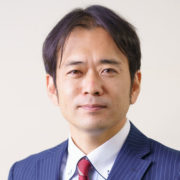
Dr. Tsutomu Nishimura is Associate Professor in Institute for Advancement of Clinical and Translational Science (iACT), at Kyoto University Hospital, Japan. As Division Chief in International Collaboration Unit under Department of Clinical Research Facilitation, he carries the mission to deploy international clinical trials for the seeds developed in Japan, given his experience in international collaboration.
Before joining iACT, he worked at Translational Research Center for Medical Innovation (TRI), funded by Japan government and Kobe City. TRI is the first academic data and statistical analysis center in Japan for transforming basic medical research into clinical applications. In TRI, Dr. Nishimura’s role is project management for international clinical trials. Among the 30 trials he coordinated, many have results published or became clinical practice.
In addition, Dr. Nishimura serves as Vice Chair of International Clinical Trial Center Network (ICN), an organization established by topnotch university clinical trial centers and institutes.
He graduated from the Kyoto University Graduate School of Medicine with a PhD. He obtained master’s degrees in public health (MPH) and business administration (MBA). He is also a registered nurse.
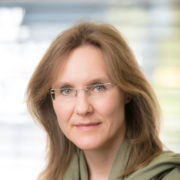
Carolin Auer studied humanities at the University of Graz in Austria and at the State University of New York at Binghamton in the USA.
She was awarded her PhD in American Studies in 1999 and after that moved into the field of university and research management.
In 2009, she acquired a Masters Degree in Higher Education Management from the Danube University in Austria.
Carolin Auer worked in research management at the University of Graz from 2000 to 2003, and at the Medical University of Graz from 2004 until present. She is currently the Director of the Research Management Office of the Medical University of Graz. This also comprises the Coordination Center for Clinical Trials, a specialized service unit which supports doctors in preparing and conducting investigator initiated trials.
Due to her positions, she has been a member of European Association of Research Managers and Administrators (EARMA) and the International Clinical Trials Center for several years.
15:50 – 16:10
Renovation of ICH GCP: The Implications of E6(R3) and E8 Guidelines
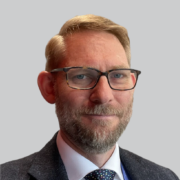
Dr Hiemstra is a clinical trials methodologist and globally recognized thought leader in nephrology research. As former chair of the UK Renal Trials Network, the International Society of Nephrology Advancing Clinical Trials (ISN-ACT) initiative and former chair of ICN, he has extensive expertise in the design, conduct and reporting of clinical trials across all trial phases. Dr Hiemstra has a particular interest in efficient and innovative trial design, has served as phase I pharmaceutical physician for more than a decade, and is the elected Biotechnology Innovation Organization representative to ICH, where he currently serves on the E20 (Adaptive Trials) working group. Within GSK, he is a member of the GSK fellowship, a small group of individuals with deep expertise that advises and provides guidance to GSK leadership and the wider organization. Dr Hiemstra brings his long experience of clinical trials design and oversight and of ICH process to illuminate recent changes to the ICH E6 and E8 guidelines.
The International Council for Harmonisation (ICH) was established in 1990 with the objective s of improving efficiency of new drug development and registration, promoting public health and reducing duplication. To this end, ICH E6 (GCP) was first published in 1996. While it has brought many advances and benefits, it has also presented some challenges including perceived rigidity, adding burden and cost to settings where it was not intended, and not being fit for purpose in a world where novel technologies, methodologies and increasing digitization is becoming the norm. This prompted the launch of ICH R3, currently in the final stages of the ICH process.
Similar limitations applied to the accompanying guideline E8 (General Principles for Clinical Studies) which was first published in 1997 and revised between 2017 and 2022.
This presentation will provide a brief background to the role and importance of ICH before reviewing the key changes in ICH E6 and E8, with particular emphasis on the practical implications of these changes.
16:10 – 16:30
EMA Guideline on Computerised Systems and Electronic Data in Clinical Trials – Highlights & Implications

After working as a physician in hospitals and employment in the pharmaceutical industry as clinical project director, Dr med Christiane Blankenstein joined the Technical University Munich, School of Medicine, where she has been director of the clinical trial unit Muenchner Studienzentrum for more than ten years. Combining about equal professional experience in the conduct of clinical trials from both an industry and academic research perspective, she looks forward to addressing some aspects on how technology is transforming and advancing clinical trials and weighing its chances and challenges.
Computerised systems are being increasingly used in clinical research. The complexity of such systems has evolved rapidly in the last few years from electronic case report forms (eCRF), electronic patient reported outcomes (ePROs) to various wearable devices used to continuously monitor trial participants for clinically relevant parameters and ultimately to the use of artificial intelligence (AI). Hence, there is a need to provide guidance to all stakeholders involved in clinical trials reflective of these changes in data types and trial types on the use of computerised systems and on the collection of electronic data, as this is important to ensure the quality and reliability of trial data, as well as the rights, dignity, safety and wellbeing of the trial participants. This would ultimately contribute to a robust decision-making process based on such clinical data. The EMA Guideline on Computerised Systems and Electronic Data in Clinical Trials describes some generally applicable principles and definition of key concepts. It also covers requirements and expectations for computerised systems, including validation, user management, security, and electronic data for the data life cycle. Requirements and expectations are also covered related to specific types of systems, processes, and data.
16:30 – 16:50
Clinical Research Data Governance at Academic Institutions and the Swiss Personalized Health Network (SPHN) Initiative
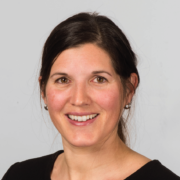
Studies of human medicine at University of Zurich (1999-2006).
Dissertation / thesis in Clinical Atherosclerosis Research in Zurich (2003-2006).
Specialization in Pharmaceutical Medicine, FMH Pharm. Med. (2007-2013).
More than 15 years of experience in clinical research, in pharmaceutical industry (Sanofi-Aventis, medical liaisons), Swiss Agency for Therapeutic Products Swissmedic (Medical Review, more than 30 GCP Inspections), regular participation in EMA GCP inspectors trainings.
Since 2011 at Clinical Trials Center (CTC; ISO 9001:2015 certified institution) of University Hospital Zurich (USZ) in different positions, since 2019 head CTC
Additional activities, Boards and Pannels:
SCTO Board of CTU directors (Swiss Clinical Trials Organisation SCTO)
ICN Steering Board (International clinical Trials Center Network; ICN)
Board Member of SAPM (Swiss Association of Pharm. Med. SAPM),
SSPT Council (Swiss Society of Pharmacology and Toxicology SSPT)
Board Member Health Tech Park Zurich
Data Governance Board USZ
Compliance Committee USZ
Clinical Ethics Committee USZ
The Swiss Personalized Health Network (SPHN) is a national Swiss initiative under the leadership of the Swiss Academy of Medical Sciences (SAMS). In collaboration with the Swiss Institute of Bioinformatics it contributes to the development, implementation and validation of coordinated data infrastructures in order to make health-relevant data interoperable and shareable for research in Switzerland.
SPHN has adopted a federative approach by building upon – and supporting – existing data sources and infrastructures across the country, including data governance boards and respective procedures at the local institutions. To make health data interoperable and accessible for research, SPHN rallies all decision-makers from key clinical, research-, research support institutions and patient organizations around the same table.
16:50 – 16:55
Q&A Session
16:55 – 17:00
Closing
Closing Remarks
Mr Henry YAU, Managing Director, Clinical Trials Centre, The University of Hong Kong, Hong Kong SAR
Venue
Organizers
The University of Hong Kong Clinical Trials Centre (HKU-CTC) is an academic clinical research organization established under The University of Hong Kong (HKU) in 1998 and has been authorized as the central platform for management and coordination of clinical studies under HKU and its affiliated teaching hospital – Queen Mary Hospital (QMH). HKU-CTC is devoted to partnering with clinical investigators, research organizations and the healthcare industry in advancing human healthcare by promoting, attracting and facilitating clinical studies of various natures.
International Clinical Trial Center Network (ICN) is an multinational network connecting excellence in clinical research. Constituted of leading academic and government-based research institutions across five continents, it connects world-class clinical trial centers with comprehensive experience in the field and strives to promote better clinical research through open knowledge exchange and enhancement of research capabilities worldwide.
Supporting Organizations
Health Bureau
Supporting Organization
The Health Bureau is responsible for forming policies and allocating resources for the running of Hong Kong’s health services. It also ensures these policies are carried out effectively to protect and promote public health, provide lifelong holistic health care to every citizen of Hong Kong, and ensure that no one is denied adequate medical treatment due to lack of means.
Invest Hong Kong
Supporting Organization
Invest Hong Kong (InvestHK) is the Hong Kong Special Administrative Region (HKSAR) Government Department responsible for Foreign Direct Investment. InvestHK’s vision is to strengthen Hong Kong’s status as the leading international business location in Asia. Our mission is to attract and retain foreign direct investment which is of strategic importance to the economic development of Hong Kong. In all our services, we apply the following core values: passion, integrity, professionalism, customer service, business friendliness, responsiveness, collaboration and innovation.
We work with overseas and Mainland entrepreneurs, SMEs and multinationals that wish to set up an office – or expand their existing business – in Hong Kong.
We offer free advice and services to support companies from the planning stage right through to the launch and expansion of their business.
Office for Attracting Strategic Enterprises
Supporting Organization
Established in December 2022 under the Financial Secretary’s Office of the Hong Kong Special Administrative Region Government, the Office for Attracting Strategic Enterprises (OASES) is tasked to attract high potential and representative strategic enterprises from around the globe. The office will:
- target industries of strategic importance to Hong Kong, including life and health technology, artificial intelligence and data science, financial technology, advanced manufacturing and new energy technology, draw up a list of target enterprises, reach out to them proactively and carry out negotiations;
- formulate attractive special facilitation measures covering such aspects as land, financing, tax and investment, and provide tailor-made plans to facilitate the setting up of the operations of enterprises in Hong Kong; and
- provide employees of target enterprises with one-stop facilitation services in areas such as visa application and education arrangements for their children.
OASES has a team of staff in Hong Kong, while 17 Dedicated Teams for Attracting Businesses and Talents in Hong Kong Offices in the Mainland and overseas will provide full corresponding support to the office.
To learn more about OASES, please visit the following website: www.oases.gov.hk
Hong Kong Science and Technology Parks Corporation
Supporting Organization
With more than 20-year history of transforming lives through innovation, technology and entrepreneurship, Hong Kong Science and Technology Parks Corporation (HKSTP) has been propelling success for the most creative minds and innovators around the globe, accelerating ambitions and delivering positive impact from Hong Kong to the Greater Bay Area and the world.
As an advocate for the innovative spirit, we strive to cultivate a diverse talent pool, connect research to innofacturing through “new industrialisation”, and create a well-established I&T ecosystem that bridges innovators with high-potential partners and investors for ideas to grow and thrive.
It is our mission to make Hong Kong the international I&T hub that empowers our future generations today in creating a better tomorrow.
Our Hong Kong Foundation
Supporting Organization
Our Hong Kong Foundation (OHKF) is a non-government, non-profit organisation founded in November 2014 by Mr. Tung Chee-hwa, former Vice Chairman of the National Committee of the Chinese People’s Political Consultative Conference and former Chief Executive of Hong Kong SAR. OHKF aims to contribute to Hong Kong’s prosperity and stability as well as its sustainable development under the “One Country, Two Systems” principle. The Foundation has three member organisations: the Public Policy Institute that focuses on public policy research, advocacy, and engagement as a think tank; the Academy of Chinese Studies that promotes traditional Chinese culture and tells the stories of China today, and Hong Kong Chronicles Institute that produces a book series about Hong Kong's development over time for preserving history and educating the people.
The Hong Kong Association of the Pharmaceutical Industry
Supporting Organization
Formed in 1968, HKAPI has 31 full members, including the world’s top 20 companies engaged in pharmaceutical R&D. Its member companies provide over 70 per cent of prescription medicines in Hong Kong. The Association’s mission is to drive the expedient access to innovative healthcare solutions for the people of Hong Kong and Macau with high ethical standard.

Sponsors
(in alphabetical order)
Diamond Sponsor
Gleneagles Hospital Hong Kong
Diamond Sponsor
Located in Hong Kong Island South, Gleneagles Hospital Hong Kong (Gleneagles) is a multi-specialty private hospital with cutting-edge medical equipment and a comprehensive range of clinical services spanning more than 35 specialties and subspecialties. As Hong Kong’s top-notch private teaching hospital, Gleneagles also contributes to the training and development of healthcare professionals and advancement of clinical research. Gleneagles is jointly developed by IHH Healthcare and NWS Holdings Limited, with The University of Hong Kong as its exclusive clinical partner.
Gleneagles Hospital Hong Kong is part of IHH Healthcare, one of the world’s largest healthcare providers. With its full spectrum of integrated services, dedicated people, reach and scale, and commitment to quality and safety, IHH aspires to be the world’s most trusted healthcare services network, united by a single purpose: to touch lives and transform care.
More information on Gleneagles Hospital Hong Kong can be found at https://gleneagles.hk.
Platinum Sponsors
GSK
Platinum Sponsor
GSK is a global biopharma company with the ambition and purpose to unite science, technology and talent to get ahead of disease together.
GSK prioritises innovation in vaccines and specialty medicines, maximising the increasing opportunities to prevent and treat disease. At the heart of this is GSK R&D focus on the science of the immune system, human genetics and advanced technologies, and world-leading capabilities in vaccines and medicines development. GSK will focus on four therapeutic areas: infectious diseases, HIV, oncology, and immunology.
Roche Hong Kong Limited
Platinum Sponsor
Founded in 1896 in Basel, Switzerland, as one of the first industrial manufacturers of branded medicines, Roche has grown into the world’s largest biotechnology company and the global leader in in-vitro diagnostics. The company pursues scientific excellence to discover and develop medicines and diagnostics for improving and saving the lives of people around the world. We are a pioneer in personalised healthcare and want to further transform how healthcare is delivered to have an even greater impact. To provide the best care for each person we partner with many stakeholders and combine our strengths in Diagnostics and Pharma with data insights from the clinical practice. Roche has been named one of the most sustainable companies in the pharmaceuticals industry by the Dow Jones Sustainability Indices for the thirteenth consecutive year.
Genentech, in the United States, is a wholly owned member of the Roche Group. Roche is the majority shareholder in Chugai Pharmaceutical, Japan.
For more information, please visit: www.roche.com
Gold Sponsors
Fortrea Hong Kong Limited
Gold Sponsor
Fortrea (Nasdaq: FTRE) is a leading global provider of clinical development and patient access solutions to the life sciences industry. We partner with emerging and large biopharmaceutical, medical device and diagnostic companies to drive healthcare innovation that accelerates life changing therapies to patients in need. Fortrea provides phase I-IV clinical trial management, clinical pharmacology, differentiated technology enabled trial solutions and post-approval services.
Fortrea’s solutions leverage three decades of experience spanning more than 20 therapeutic areas, a passion for scientific rigor, exceptional insights and a strong investigator site network. Our talented and diverse team of more than 19,000 people working in more than 90 countries is scaled to deliver focused and agile solutions to customers globally.
Learn more about how Fortrea is becoming a transformative force from pipeline to patient at Fortrea.com and follow us on LinkedIn and Twitter @Fortrea.
Gilead Sciences Hong Kong Limited
Gold Sponsor
At Gilead, we’re committed to creating a healthier world for everyone – no matter the challenges ahead of us. For more than 35 years, we’ve pursued the impossible, chased it down, tackled it for answers and surrounded it for a way in. We have worked tirelessly to bring forward medicines for life-threatening diseases.
Through bold and transformative science, we’re driving innovation that has the potential to become the next generation of life-changing medicines. Our ambition is evident in our mission. Because the impossible is not impossible. It’s what’s next.
Novotech
Gold Sponsor
Novotech is internationally recognized as the leading Asia Pacific centred Biotech Contract Research Organization (CRO) with global execution capabilities. Novotech is a clinical CRO with labs, phase I facilities, drug development consulting services and FDA regulatory expertise and has experience in over 5,000 clinical projects, including Phase I to Phase IV clinical trials and bioequivalence studies. Novotech is positioned to serve biotech clients conducting clinical trials in Asia Pacific, the US and Europe. Novotech has over 3000 staff globally and 34 office locations.
For more information, please visit: https://novotech-cro.com
Nuance Pharma Limited
Gold Sponsor
Nuance Pharma is an innovation focused biopharma company, with late-stage clinical pipeline and commercial stage asset portfolio across respiratory, emergency care, iron deficiency anemia and pain management.
With the mission to address critical unmet needs in Asia Pacific, Nuance deploys the Dual Wheel model that develops a leading innovative pipeline, while maintaining a self-sustainable commercial operation in China and Asia.
Sinovac Biotech (Hong Kong) Limited
Gold Sponsor
Sinovac Biotech Ltd. (SINOVAC) is a China-based biopharmaceutical company that focuses on the R&D, manufacturing, and commercialization of vaccines that protect against human infectious diseases. SINOVAC's product portfolio includes vaccines against COVID-19, enterovirus 71 (EV71) infected Hand-Foot-Mouth disease (HFMD), hepatitis A, varicella, influenza, poliomyelitis, pneumococcal disease, and mumps. SINOVAC continually dedicates itself to new vaccine R&D, with more combination vaccine products in its pipeline, and constantly explores global market opportunities. SINOVAC plans to conduct more extensive and in-depth trade and cooperation with additional countries, and business and industry organizations.
Hong Kong Tigermed Co., Limited
Gold Sponsor
Tigermed (Stock code: 300347.SZ/3347.HK) is a leading global provider of integrated research and development solutions for biopharmaceutical and medical device industry. With a broad portfolio of services and a promise of quality, from preclinical development to clinical trial to commercialization, we are committed to moving our customers through their development journey efficiently and cost-effectively.
Since our inception in 2004, we have a proven track record of project delivery with 3,300+ drug clinical studies and 780+ medical device clinical studies around the world, and supported the clinical studies of 73 approved innovative drugs in China. According to Frost & Sullivan report, Tigermed is the only Chinese company that was ranked as top 10 clinical CROs globally in 2022 by revenue.
Tigermed currently represents a worldwide network of more than 100 subsidiaries and 180 service locations, with over 10,000 employees across Asia Pacific, Europe, North & South America and Africa. We are devoted to building an integrated platform that enables the boundless possibilities for the healthcare industry, embracing challenges to fulfill our commitment to serving unmet patients’ needs, and ultimately saving lives.
For more information: www.tigermedgrp.com
Technical Sponsor
Contact Us
For enquires, please contact the CRGo Secretariat
Tel: +852 2255-2550
Email: ctccomm@hku.hk

